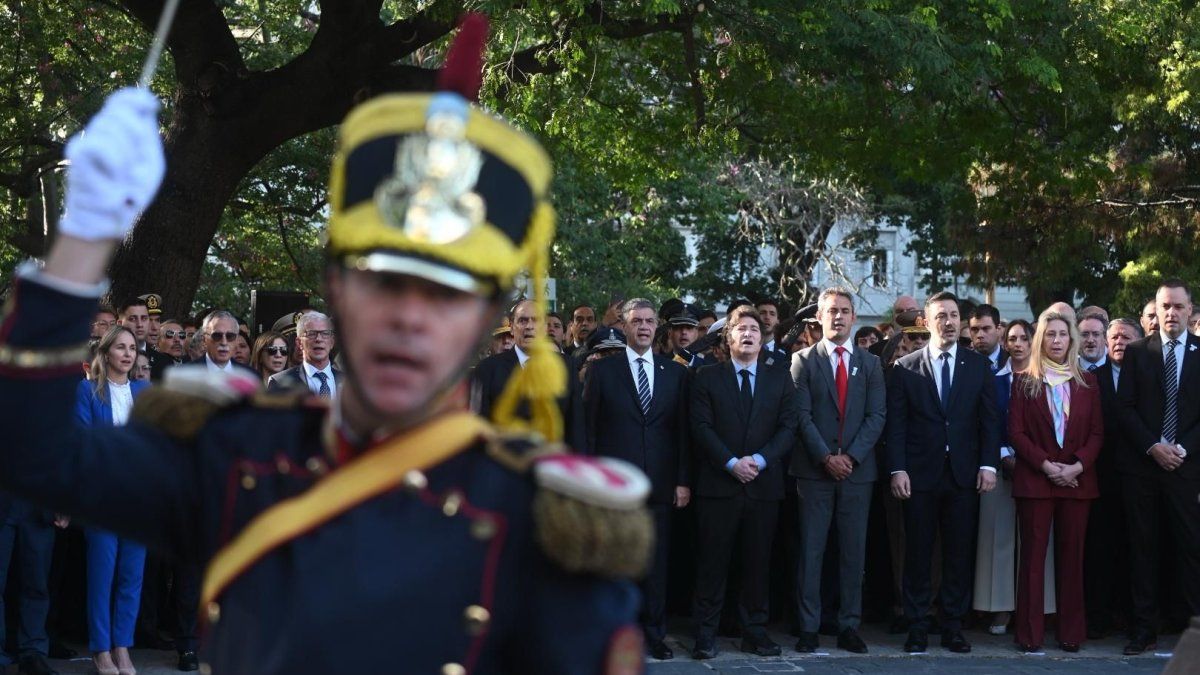What was expected as a vigorous reaffirmation of national sovereignty was diluted in a provocative speech. The suspicion for the IMF.
He act commemorative for him Veteran day and the fallen in the Falklands Warchaired by Javier Milei In San Martín Square, he left an aftertaste disenchantment that does not go unnoticed. What was expected as a vigorous reaffirmation of national sovereignty was diluted in a speech that, although loaded with references to freedom and prosperity, lacked the forcefulness that an issue of this size claims. The president opted for a rhetoric that, wrapped in his usual libertarian emphasis, seemed plus a conciliation exercise than a firm defense of the historic Argentine claim.
The content you want to access is exclusive to subscribers.
Among the veterans present, the discomfort was evident. Who in 1982 risked their lives for the homeland contemplated with confusion and some indignation contained a message that did not resonate with the memory of their sacrifice. Milei said that he wants the inhabitants of the islands, whom he called “Malvinenses”, “decide to vote with our feet”, suggesting that the recovery of the territory depends on a voluntary choice of the islanders, attracted by a prosperous country. This position, which some called illusory, crashed frontally with the expectations of those who still carry war on their skin. Strictly speaking, it is the historical position of the United Kingdom. Precisely.


If one takes advantage of the National Constitution (Argentina, not that of the United Kingdom), then it has, in its First transitory dispositionincorporated in the 1994 reform, the following:
First transitory disposition: “The Argentine nation ratifies its legitimate and imprescriptible sovereignty over the Falkland Islands, South Georgias and South Sandwich and the corresponding maritime and insular spaces, for being an integral part of the national territory. The recovery of said territories and the full exercise of sovereignty, respecting the way of life of its inhabitants, and according to international law, constitute a permanent and inaltenities objective of the Argentine people.
Without clear direction and against doctrine
The background of discourse distilled an ambiguity that not a few read as a wink to resignation. Talking about sovereignty while it is proposed that the Kelpers could choose to be Argentine if Argentina becomes a “power” diverts the attention of the core of the conflict: the islands were occupied by the United Kingdom in 1833, with the expulsion of its original population and the prohibition of its return, in an act that violated the territorial integrity of the country. As noted in recent debates, there is no space here for the principle of self -determination, since it is not a democratic choice, but a historical usurpation that requires a clear position.
However, it is worth asking if this warmth responds to a broader calculation. The question arises if Milei moderated her aggressiveness to the United Kingdom in the Malvinas cause due to the need to ensure her support in the Board of Directors of the International Monetary Fund, where London has weight as an influential member. At a time when Argentina negotiates a new agreement with the IMF to relieve its debt, the possibility that the Government has opted for softer diplomacy with the British in exchange for financial support cannot be ruled out, even if it lacks official confirmation.
Provocation as input in the midst of turbulence
The timing of this approach was particularly inopportune. In a country where Malvinas remains a symbol that crosses generations, raising a solution that delegates the initiative to the occupants of the territory – in place of reaffirming the diplomatic claim with vigor – it is perceived as a lack of historical sensitivity. The memory of the 649 fallen in 1982 does not tolerate ambivalencesand the official discourse seemed to underestimate the emotional weight that this date loads in national consciousness.
The scenery of the act, with its national flags and chords, failed to hide the fissures of the message. The emphasis on the defense of the armed forces and the criticisms of the “political caste” did not compensate for the absence of a concrete strategy for the islands. Everything remained in a formality that prioritized the ideological narrative of the government over a tangible commitment to the cause, leaving the feeling that the tribute was more a procedure than a declaration of principles.
So, The commemoration under the management of Milei will be remembered not for its ability to unite or inspire, but for the murmur of disappointment that accompanied it. It remains in the air if this ambiguity is just a stumble or a sign of pragmatism forced by economic urgencies and international negotiations. In a country that still seeks to heal the wounds of that conflict, the lack of a resounding message posts once again the serious debate about the destiny of the islands, while the doubt about the true motifs of the president continues to float without response.
Source: Ambito




